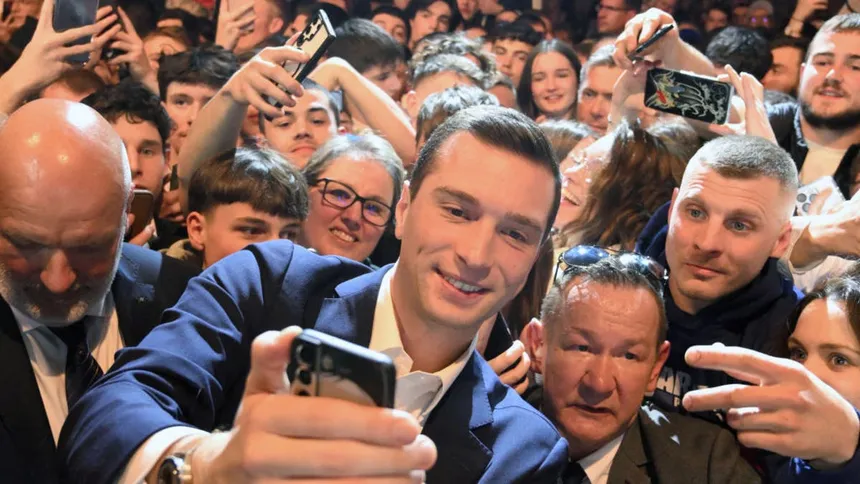As France prepares for its upcoming parliamentary election, the far-right leader of the National Rally, Jordan Bardella, has backtracked on his party’s previous promise to withdraw France from NATO’s strategic military command. In a sudden reversal, Mr. Bardella stated that he does not plan to question the commitments France has made on the international stage, which includes its membership in NATO. This surprising about-face comes as the National Rally attempts to tone down its previously announced positions in order to win over voters outside of its traditional base.
The change in stance is particularly notable given the National Rally’s 2022 presidential election manifesto, which explicitly stated that the party’s priority would be to leave the integrated NATO command. The move would have significantly weakened France’s role and influence within the alliance and taken French military staff out of the NATO body that plans operations. However, Mr. Bardella’s recent comments suggest that the party is willing to abandon this stance in order to gain power.
Mr. Bardella’s shift comes as the National Rally attempts to rebrand itself as a more mainstream party, toning down its previously announced positions on various issues. The party’s leader emphasized that France must not leave NATO’s military command while it is at war, particularly in reference to Russia’s full-scale invasion of Ukraine. Mr. Bardella also maintained that he is firmly opposed to sending troops to Ukraine, unlike his counterpart, President Emmanuel Macron, who has suggested that Western troops should not be ruled out.

Jordan Bardella (Via Jordan Bardella/Twitter)
Despite his opposition to sending troops, Mr. Bardella supported sending continued French supplies of weaponry, ammunition, and other military equipment to Ukraine in order to enable the country to protect itself. However, he also expressed concerns about the risk of direct escalation with Russia, citing its nuclear-armed status. Mr. Bardella’s comments come as the National Rally attempts to walk a fine line between its far-right ideology and its desire to be seen as a viable alternative to the current government.
The situation is further complicated by France’s upcoming parliamentary election, which will decide the makeup of the country’s parliament, not the occupant of the presidential Elysee Palace. President Macron has a presidential mandate until 2027 and has stated that he will not step down before the end of his term, although he may have to share power with a far-right-led government if the National Rally wins a majority.
Mr. Bardella’s decision to abandon the National Rally’s previous pledge to withdraw from NATO’s strategic military command is a significant shift in the party’s stance on foreign policy. The move suggests that the party is willing to adapt to changing circumstances in order to gain power, even if it means abandoning previously held beliefs. As the French public prepares to head to the polls, it remains to be seen whether the National Rally’s rebranding efforts will pay off and whether they will be able to form a government.
